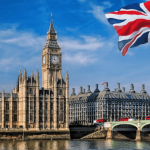British families are set to receive a new blow to their budgets this autumn as Ofgem announces a hike in the price cap on energy. From October, the average annual dual-fuel bill will increase by 2%, taking the average annual cost to £1,755, an increase of more than £35 at the very time that colder weather is coming.
It’s a swift reversal from the temporary summer respite, when the cap had fallen by 7% to £1,720 because of a short-term decrease in wholesale prices.
“Energy prices skyrocketed in the Conservatives’ time in office because they locked our nation onto the fossil fuel rollercoaster and working families are paying the price,” a Labour spokesperson stated.
Energy Price Cap Breakdown
- Electricity price will rise from 25.73p to 26.35p per kWh.
- Gas price will decrease marginally from 6.33p to 6.29p per kWh.
- Standing charges:
- Electricity: from 51.37p to 53.68p/day
- Gas: from 29.82p to 34.03p/day
Even though gas prices have crept down, the overall increase is principally caused by the extension of the Warm Home Discount scheme, which contributes approximately £15 to average bills. The scheme will now help an additional 2.7 million households, providing each one with a £150 reduction.
Even so, that increased assistance does not ease the pain for all.
Close to £600 More Than Pre-Ukraine War Levels
The return of higher prices means the typical household is paying almost £600 extra a year compared to before the Russian invasion of Ukraine in 2022—a crisis that drove global gas markets into turmoil.
This new leap occurs when finances within the home are already tight. Energy debt in UK homes has jumped to an all-time high of £4.15 billion after last winter. Energy prices may have levelled out after the peaks of 2022, but the debt issue has only grown.
British homes will soon witness their energy bills increase once again, with the typical yearly bill jumping to £1,755. It’s a bitter reminder of just how unstable—and expensive—the market is, despite government initiatives.
About 9 million homes on standard variable tariffs will suffer the impact outright in October. But remember it only capping the unit rate, not the full bill. Use more, pay more.
Experts at Cornwall Insight caution that, although a small drop is possible in January, this relies to a great extent on:
- Weather conditions
- Geopolitical events
- Any additional policy charges on bills, such as nuclear new build funding
It is why Nigel Farage’s unpatriotic war on clean energy would be an absolute catastrophe for families, businesses and our economy.
His plans to destroy it would drive bills up, destroy nearly a million jobs and cancel billions of pounds of essential investment right around the country that will make us more secure in our energy,” stated the Labour spokesperson.
Labour has stood by its policies, pointing out that 6 million families will gain from the Warm Home Discount when they are in charge, 3 million more than under the current policy. They contend that continued investment in clean, homegrown energy is the only means to bring bills down forever.
As winter approaches, energy affordability is back in the news. With domestic debt rising and uncertainty looming over future price movements, demand for solutions to last has never been more pressing.






